Manchester Arena bombing: Hashem Abedi guilty of 22 murders
- Published
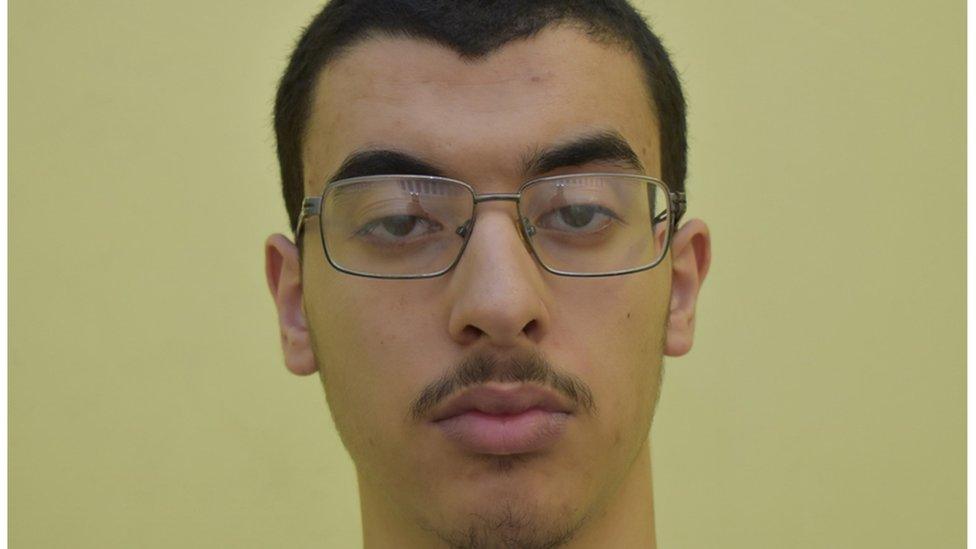
Hashem Abedi was arrested in Libya the day after the bombing
The brother of Manchester Arena bomber Salman Abedi has been found guilty of murdering 22 people.
Hashem Abedi had denied helping to plan the "sudden and lethal" blast which killed or injured "nearly 1,000".
The Old Bailey heard the pair worked together to source materials used in the suicide blast after an Ariana Grande show at the venue.
Prosecutors said Hashem was "jointly responsible" with his brother for the attack on 22 May 2017.
The Manchester-born siblings "stood shoulder to shoulder" in the plot, with younger sibling Hashem "just as guilty of murder" as the bomber himself, the court heard.
Hashem, 22, was also found guilty of one count of attempted murder, encompassing the remaining injured, and conspiring to cause explosions.
He was not in court for the unanimous verdicts after he dismissed his legal team last week and decided to take no further part in the trial.
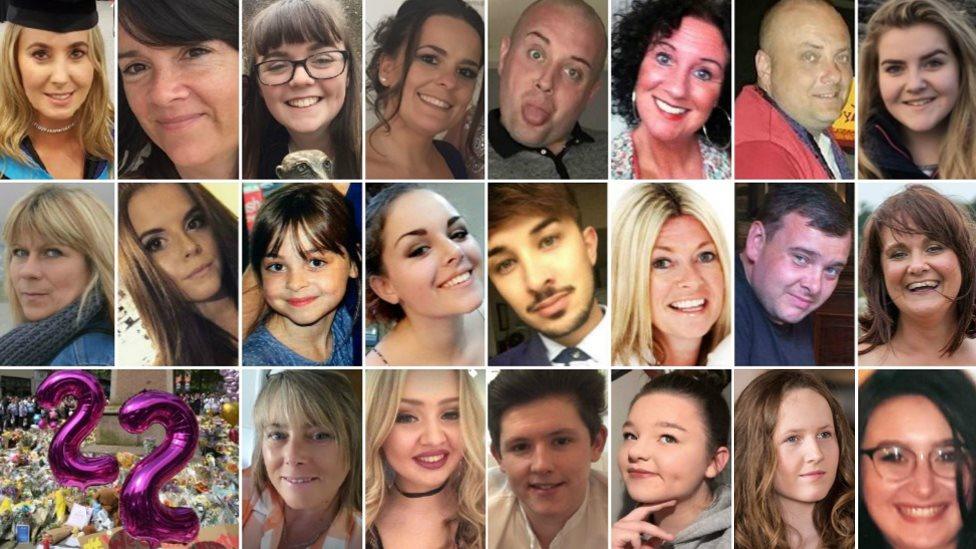
Top (left to right): Lisa Lees, Alison Howe, Georgina Callender, Kelly Brewster, John Atkinson, Jane Tweddle, Marcin Klis, Eilidh MacLeod - Middle (left to right): Angelika Klis, Courtney Boyle, Saffie Roussos, Olivia Campbell-Hardy, Martyn Hett, Michelle Kiss, Philip Tron, Elaine McIver - Bottom (left to right): Wendy Fawell, Chloe Rutherford, Liam Allen-Curry, Sorrell Leczkowski, Megan Hurley, Nell Jones
Some of the victims' family members burst into tears as the verdicts were delivered after the seven-week trial.
Figen Murray, mother of victim Martyn Hett, said while the verdicts bring her "comfort to know the British justice system has played its role...it doesn't give us closure".
His father, Paul Hett, added that while "this verdict will not bring back the 22 victims murdered by Salman and Hashem Abedi," he said it will provide "an overwhelming sense of justice to all those affected by this heinous crime".
Twenty-two men, women and children, aged eight to 51, were killed in the attack while 264 "were physically injured" and 670 more have since "reported psychological trauma as a result of these events".
Duncan Penny QC, prosecuting, said the Abedi brothers had spent "months" planning the blast and had a "shared goal [to] kill, maim and injure as many people as possible".
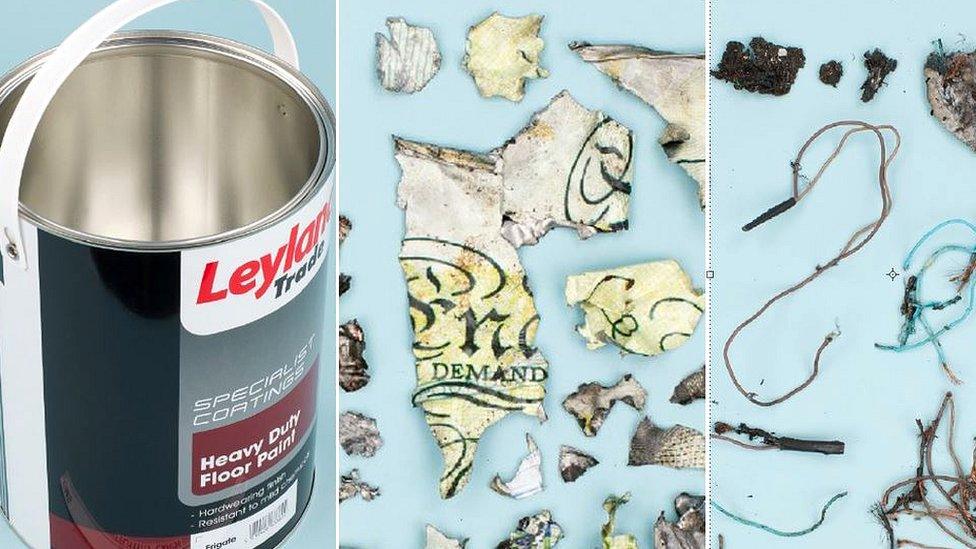
The bomb comprised a five-litre paint can placed inside a money tin, packed with thousands of nuts and screws
They worked together to source chemicals and buy screws and nails to use as "anti-personnel shrapnel" in experimental improvised bombs, the court was told.
The brothers used 11 mobile phones in five months - some for as little as two hours - and used a variety of vehicles, despite neither passing their driving test, to transport components around the city.
Afterwards, police found Hashem's fingerprints at key addresses and in a car, which still contained traces of explosives. Although he was in Libya when the device was detonated he was "just as guilty" as his brother, Mr Penny said.
Footage of Manchester Arena bomber Salman Abedi
Greater Manchester Police said Hashem may have been the senior figure in the plot, and intended to cause "further bloodshed" around the world.
The former Manchester College electrical installation student held down a series of menial jobs working in restaurants and takeaways, including a £5-an-hour role as a delivery driver.
He was described as "unreliable" and "with the wrong idea of Islam" by his boss, before he left for his parents' home country of Libya, 2,000 miles away, a month before the bombing.
Hashem was detained a day after the attack, and claimed he was subjected to torture by Libyan militiamen before his extradition two years later.
He told police he was "relieved to be back in the UK", adding: "[I] wish to assist in this investigation as much as I can." He then offered "no comment" during police interviews.
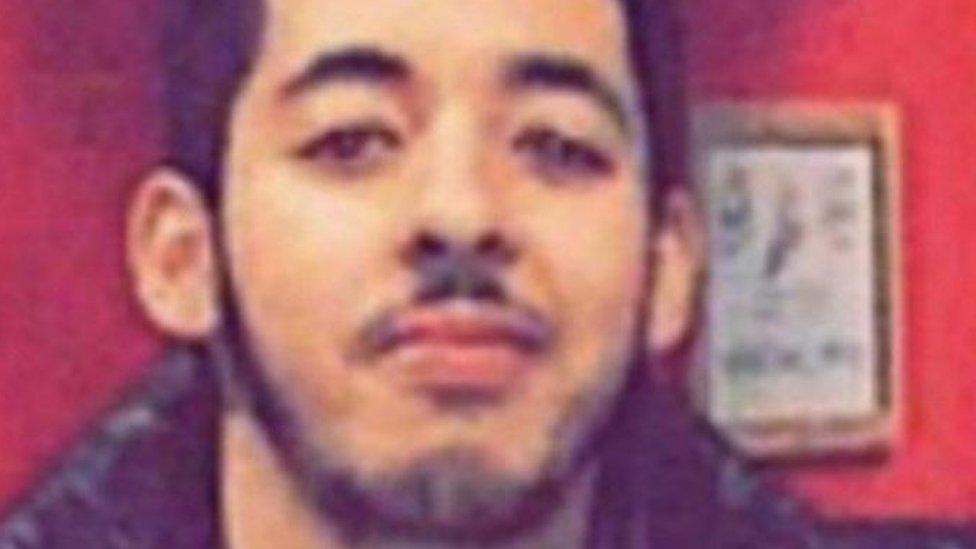
Salman Abedi and his brother lived in Fallowfield, four miles south of Manchester city centre
Det Ch Supt Simon Barraclough said Hashem was "with his brother throughout the entire process" of making and building the bomb and that he had taken a four-minute phone call from Salman on the night the device went off.
"At that point he (Salman) is getting that last-minute inspiration (from Hashem)...and he's telling him what he's about to do," he said.
"I believe he provided encouragement right up to the end. This was all about the sick ideology of Islamic State and this desire for martyrdom."
He added: "These two brothers are literally hand in glove in this process."
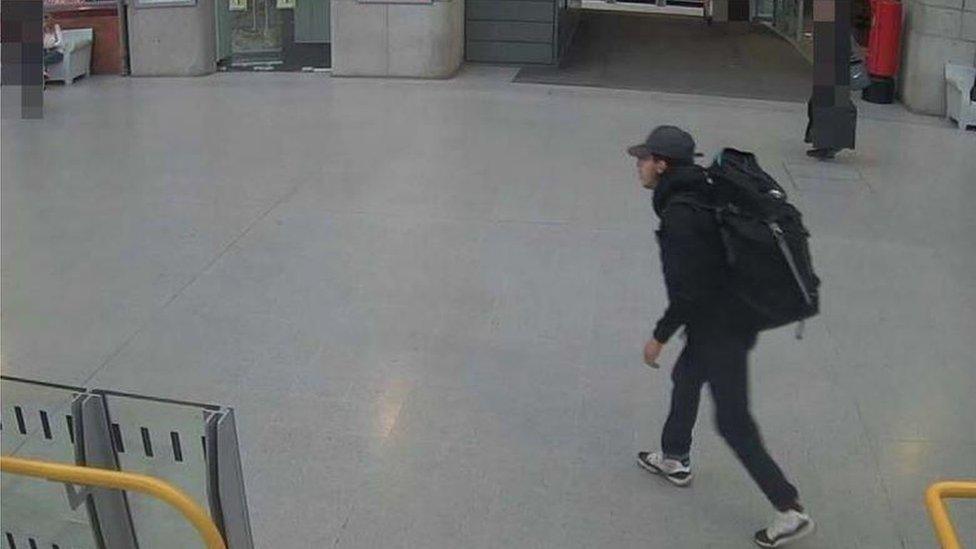
Salman Abedi was seen on CCTV arriving at Manchester Victoria station carrying a rucksack
Following the verdicts, lawyer Victoria Higgins - representing 11 of the bereaved families - said they were relieved that the "calculating" killer had finally been brought to justice.
"Families have waited a long time to see Hashem Abedi face justice for his crimes and I think the overwhelming emotion for most will be one of relief that he cannot hurt anyone else," she said.
Sentencing will take place at a later date but the judge Mr Justice Jeremy Baker said it was a "little way off".
A public inquiry into the bombing is due to begin in June.
- Published17 March 2020
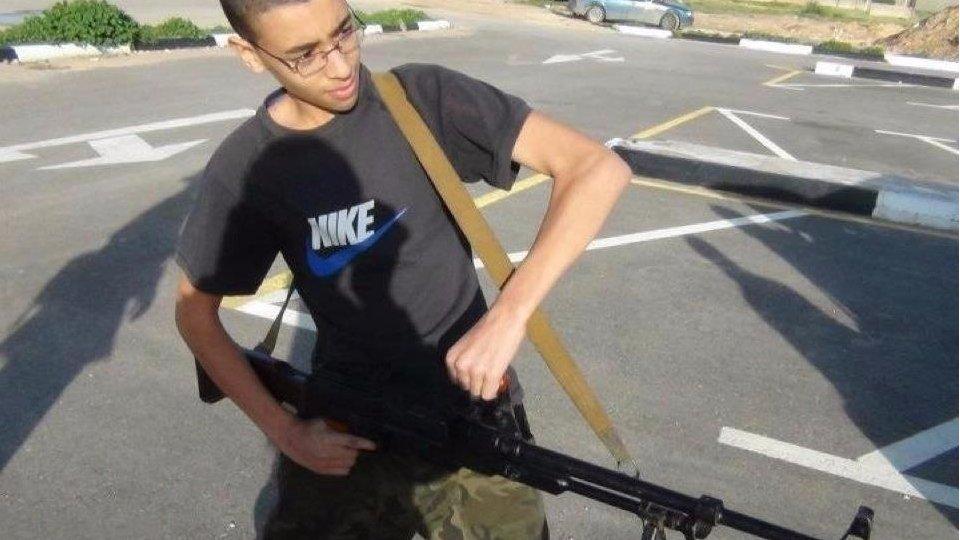
- Published3 November 2022

- Published16 March 2020
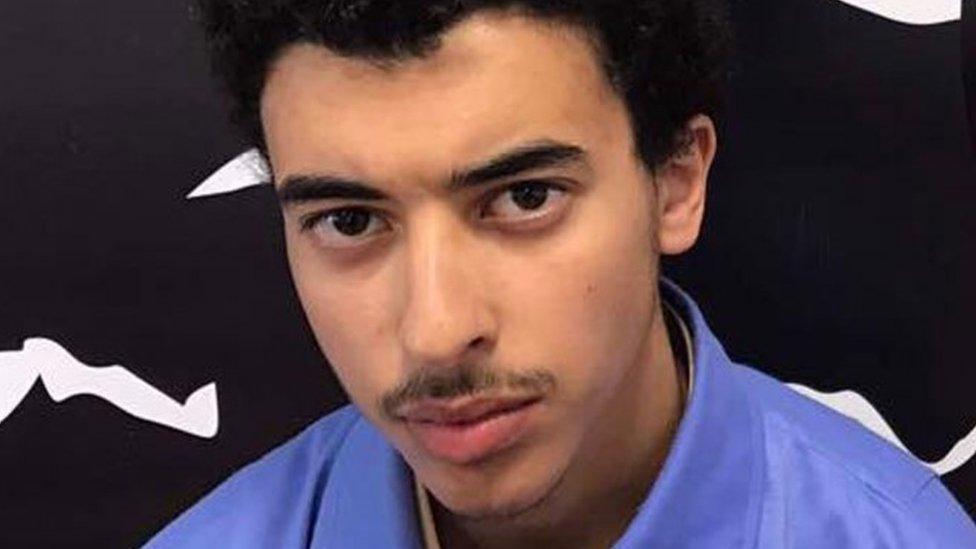
- Published12 March 2020

- Published10 March 2020

- Published9 March 2020
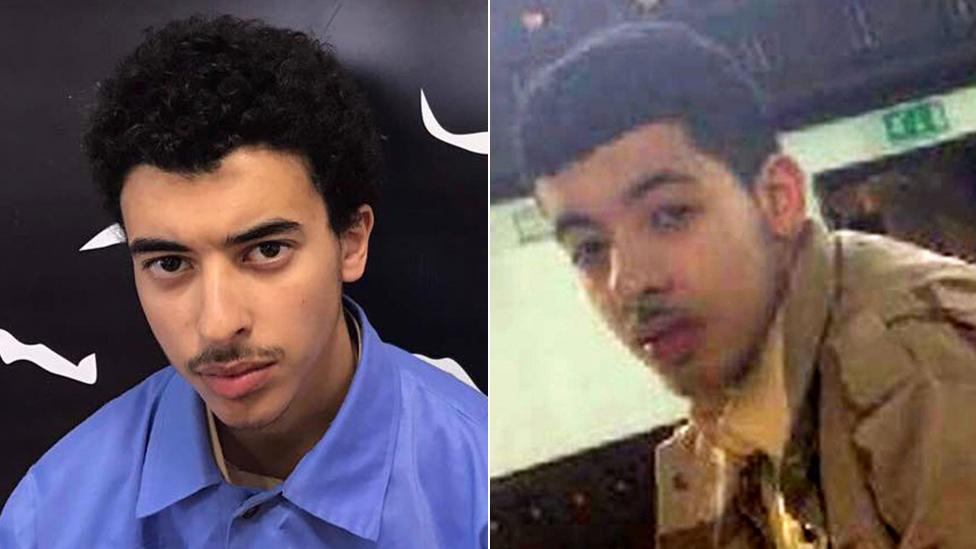
- Published5 March 2020

- Published4 March 2020
